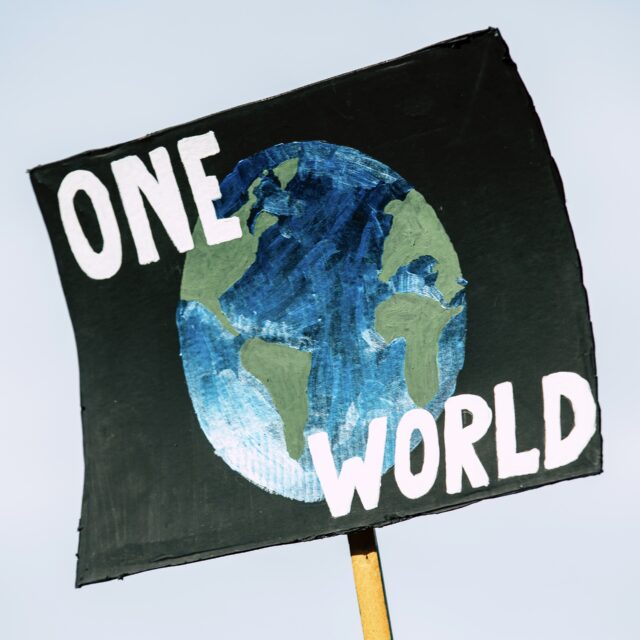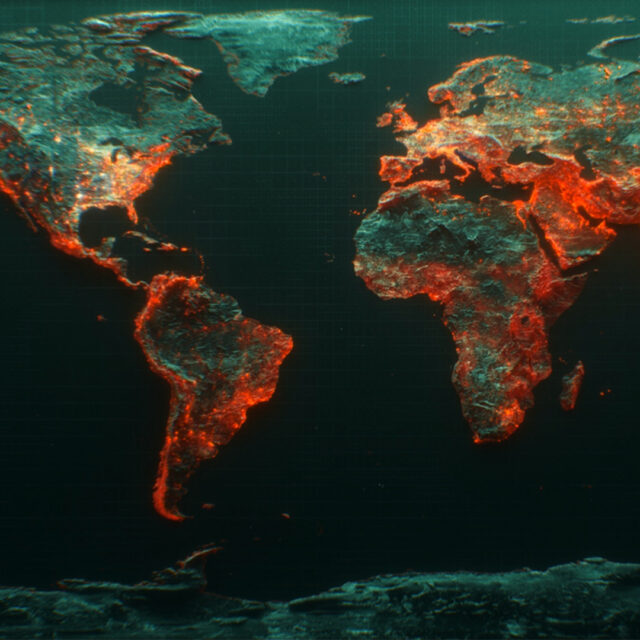Global coverage of protests against police brutality in Nigeria continues, as Tanzanians head to the polls in a crucial election. And as government representatives gathered virtually for the World Health Summit, a new study finds a global mental health crisis and African nations announce plans to increase the use of rapid diagnostic COVID-19 tests.
Here are six crucial stories you may have missed this month.
Nigerian protests against police brutality in the global spotlight
Earlier this month, Nigerian security forces opened fire on protestors in Lagos, killing at least 12 people and bringing global attention to the youth-led protests against police brutality in Nigeria. For weeks, protestors called for an end to the Special Anti-Robbery Squad (SARS), a heavily armed police unit that is notorious for violence, including reports of killings, torture, and disappearances. In response, Nigerian President Muhammadu Buhari pledged to disband SARS, and said “the disbandment of SARS is only the first step in our commitment to extensive police reform.” But many Nigerians remain skeptical, saying they have heard similar promises before from the Nigerian government to reform police forces. TIME has a history of SARS and more on what experts think will happen now.
Tanzania heads to the polls in crucial election
This week, voters in Tanzania headed to the polls in a crucial election, which many see as a referendum on current President John Magufuli, who is seeking a second five-year term. On Wednesday, tens of millions of people voted peacefully and without incident. But since election day, opposition leaders in Tanzania have accused authorities of stuffing ballot boxes. Despite the widespread allegations of fraud, Magufuli is likely to be declared the election winner, and the ruling party seems to have secured a two-thirds majority in Parliament. The ruling party, the Party of the Revolution (or Chama Cha Mapinduzi), has dominated Tanzanian politics since independence in 1961.
Surge in COVID-19 testing in Africa
Rates of COVID-19 testing have been lower in Africa than many other regions — but this could soon change. African nations are planning to quickly increase their use of rapid diagnostic COVID-19 tests, explains Dr. Matshidiso Moeti, the World Health Organization regional director for Africa. The Access to COVID-19 Tools Accelerator — launched by WHO and partners — is making 120 million rapid tests available to low- and middle-income countries. The new rapid tests are less expensive, easier to use, and provide results in under 30 minutes. Experts hope they will enable African countries to decentralize testing away from urban areas.
A clear message during the World Health Summit
Representatives from around the world gathered virtually this month for the World Health Summit. And representatives from low-income countries had a clear message for their wealthier counterparts, writes Devex: “They have a vision for how to emerge from the COVID-19 pandemic, and while they welcome advice and technical expertise, they are not interested in being told what to do.” At one of the first major health conferences during the pandemic, attendees discussed the need to share experiences and lessons learned in combating COVID-19, build capacity to prevent and respond to future pandemics, and renew a focus on the health targets of the Sustainable Development Goals.
COVID-19 disrupts tuberculosis programmes in Southern Africa
COVID-19 is draining resources for tuberculosis treatment, which is posing particular problems for mineworkers in Southern Africa, Thomson Reuters Foundation reports. There are 2,500-3,000 TB cases reported per 100,000 mineworkers in Southern Africa — which is 10 times higher than what the World Health Organization classifies as an epidemic emergency. “There’s such a strong focus on COVID that everyone is forgetting about TB and other non-communicable diseases, and this contributes to more deaths,” says Vama Jele, secretary general of a migrant mineworkers association in eSwatini.
A global mental health crisis
COVID-19 is taking a toll on mental health globally, especially for women and girls, according to a new report by CARE. The report surveyed over 10,000 respondents from 38 countries, including 19 low-income countries. It found that 27% of women and girls reported increased stress, anxiety, and mental health challenges, compared to 10% of men. Experts warn that governments need to allocate more funding to mental health and psychosocial support now to avoid greater repercussions in the future.



